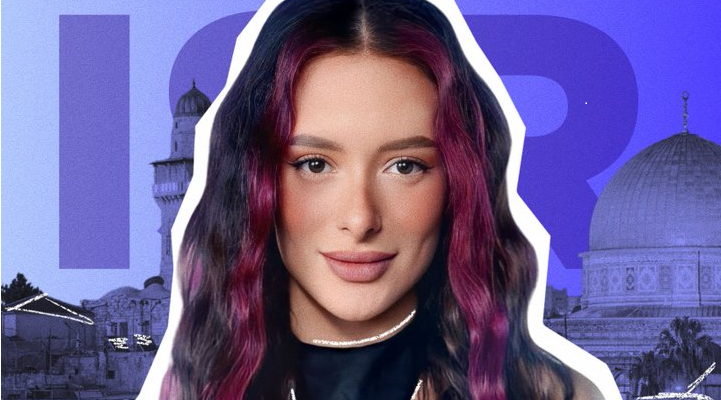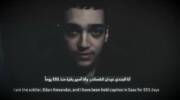‘Our enemies seek to push and exclude the State of Israel from every stage, it is up to Israel to make its voice heard with pride and dignity.’
By JNS
After the Eurovision Song Contest threatened to disqualify two of Israel’s entries over their perceived political messaging, the country’s public broadcaster Kan is moving to modify or replace the songs to ensure the Jewish state’s participation in May, Kan announced on Sunday.
“Despite the disagreement with the position of the Eurovision supervisory committee, which requested to disqualify the two songs submitted by Israel to the competition, it was decided to adopt the advice of President Isaac Herzog…which would enable Israel’s representation on the Eurovision stage,” Kan said in a statement.
“The president said that precisely when our enemies seek to push and exclude the State of Israel from every stage, it is up to Israel to make its voice heard with pride and dignity and to raise its flag in every international forum, especially this year,” the broadcaster added.
Kan said it had approached the writers of the two songs, “October Rain” and “Dance Forever,” and asked them to modify the lyrics.
The organization will then decide which song it will send to the European Broadcasting Union (EBU), which organizes the musical extravaganza, for approval.
The last three lines of “October Rain,” which is primarily sung in English, are in Hebrew, and describe the condition of Israelis during the Oct. 7 Hamas terrorist attacks, in which some 1,200 civilians were slaughtered: “There’s no air left to breathe / No place, no me from day to day.”
The song currently ends with “They were all good children, each one of them,” sung in a relatively low voice compared to the rest of the song.
In one of the verses, the Israeli contestant, Eden Golan, sings the word “flowers,” which is Israel Defense Forces slang for fallen soldiers, but which does not carry that connotation for European viewers.
The runner-up entry, “Dance Forever,” contained a clear reference to the massacre at the Nova music festival near Kibbutz Re’im in southern Israel, where Hamas terrorists murdered 364 people on Oct. 7.
Last month, contest organizers reaffirmed that Israel will be allowed to compete amid the war against Hamas, rejecting parallels drawn by pro-Palestinian activists with Russia’s exclusion from the competition over its invasion of Ukraine.
“Comparisons between war and conflict are complex and difficult and, as an apolitical media organization, it is not our place to make them,” EBU Director-General Noel Curran told AFP.
A review by EBU’s governing bodies found “that the Israeli public broadcaster Kan met all the competition rules for this year and can participate, as it has for the past 50 years,” Curran noted.
The EBU head said his organization was “aware” of voices calling for the Jewish state to be excluded from this year’s competition.
“However, the Eurovision Song Contest is a non-political musical event and a competition between public service broadcasters that are members of EBU. It is not a competition between governments,” he said.
The Eurovision Song Contest 2024 is taking place in Malmö, Sweden, following the Scandinavian country’s victory at the 2023 song contest. Golan, 20, will represent the Jewish state in the second semifinal on May 9.
The grand final will take place two days later, on May 11.
Last year, Israeli pop star Noa Kirel finished in third place in the Eurovision final in Liverpool, behind Sweden and Finland.























